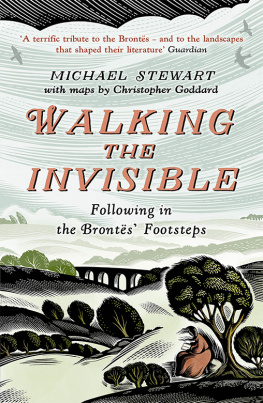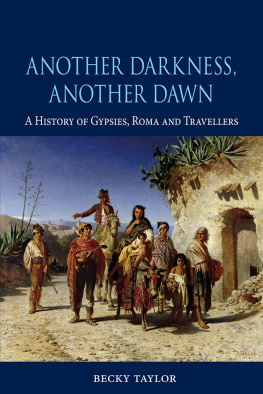Studies in the Ethnographic Imagination
First published 1997 by Westview Press
Published 2018 by Routledge
52 Vanderbilt Avenue, New York, NY 10017, USA
2 Park Square, Milton Park, Abingdon, Oxon OX14 4RN
Routledge is an imprint of the Taylor & Francis Group, an informa business
Copyright 1997 Taylor & Francis
All rights reserved. No part of this book may be reprinted or reproduced or utilised in any form or by any electronic, mechanical, or other means, now known or hereafter invented, including photocopying and recording, or in any information storage or retrieval system, without permission in writing from the publishers.
Notice:
Product or corporate names may be trademarks or registered trademarks, and are used only for identification and explanation without intent to infringe.
A CIP catalog record for this book is available from the Library of Congress.
All photographs appear courtesy of the author unless otherwise credited.
ISBN 13: 978-0-8133-3199-7 (pbk)
ISBN 13: 978-0-8133-3198-0 (hbk)
Publishers Note
The publisher has gone to great lengths to ensure the quality of this book but regrets to inform the customer that previously available online resources are no longer available with this title.
Maurice Bloch
T HIS IS A STUDY OF HOW some of the most marginal and exploited people that exist can imagine themselves to be princes of the world.
During the past two hundred years the Gypsies of Eastern Europe have faced near enslavement by land owners, the physical and moral onslaught of the Nazi holocaust, the fundamental challenge to their central values from the Communist state, and the violent discrimination and dislocation caused by the return to capitalism. One would have thought that the challenge would be too great, that they would have suffered cultural annihilation.
In fact this has not been the case. The documentation and analysis of this success, partial though it is, is the subject matter of this important and original study.
The evocation of feasting Hungarian Gypsy men, a strong and confident group of brothers bound forever, in their imagination, in a world outside history and nation-states, forms the hub of this book. It bears witness to the ability of people to construct a representation of coherence through art and symbols. This representation is fragile and temporary. Nevertheless its joyful acting-out creates the lasting identityas Gypsiesof those who evoke it.
This is what Durkheim meant when he saw ritual as a means by which people collectively create the moral order of society at the very moment when they believe most strongly that it originates from a transcendental beyond. What Durkheim forgot, however, and what this book never forgets, is that the experience of being outside history and beyond the exercise of earthly power is only an illusion.
This consciousness of the illusory nature of representation exists at two levels: analytic and phenomenological. Analytic because it is obvious that these fleeting images of autonomy and power can only be created with the raw materials that history at any given moment provides; they are mere interludes in the constant human struggle with the world as it is, and as it changes. Phenomenological because these festive and exultant representations are known by the actors themselves to be only one among many others that they feel able to control less well or not at all.
Michael Stewart has, therefore, undertaken two major tasks. First, he shows that the Gypsies cannot be understood in isolation from the wider society of which they have always formed a part. We need to take into account the changing attitudes and policies towards the Gypsies in the Austro-Hungarian empire, in Communist Europe and in post-Communist Hungary to comprehend their present condition. In doing this, he performs another unexpected service: He articulates a more profound understanding of the nature of these regimes themselves.
In particular, Stewart makes us aware of the great significance of the ways in which Eastern European peasants and Communist ideologues evaluated different forms of work and commerce. When they inform a subtle discourse about the Gypsies, these ostensibly crude ideas reveal themselves to be far more ambiguous and complex than they at first seem. Thus the study of non-Gypsy attitudes and beliefs about Gypsies becomes an alternative political and economic history of this part of Eastern Europe as a whole.
Foucault has argued that the study of discourses about marginal groups becomes a means of revealing in a new light the central tenets of those who hold power. The second major task that Stewart undertakes in this book is one that Foucault in his studies of prisoners or deviants notably failed to do. This task is to demonstrate how those whom power-holders consider to be marginal are central to themselves.
Stewarts achievement is to make us see the Gypsies from their point of view or, rather, from the many points of view they employ to cope with their situation. The Gypsies create new types of knowledge and forge new skills in a dialectic with the center. In response to exclusion and exploitation they create their own subversive economic doctrines.
These creations are not, however, easily accomplished. They are often tentative and involve elements of unconvincing swagger. And they create their own legitimation of exploitation, particularly of women. Above all, they involve ignoring much of the reality of life; for example, the engagement of Gypsies in factory work under communism, or the brute fact that the ways in which non-Gypsies can finally be outsmarted are limited indeed and tend to provoke further humiliations.
Stewart carried out long-term field work with the Gypsies, speaking to them in their own language, in the multitude of contexts everyday life provides. He is, therefore, able to make explicit the implicit. The anthropologist is not a spokesperson for the people he or she studies, since one cannot and should not take away their right, when they are able to exercise it, of speaking for themselves. What the anthropologist can do is make meaningful to us the actions and reactions of those who only seem to be foreign until understanding is achieved. As Stewart shows so well, in spite of history and culture the Gypsies do, in the end, belong to our one shared social network. They are moved by emotions and beliefs similar to those that move us and everyone else.
An intimate knowledge of the meaning ordinary people give to and express through their lives is what historical studies almost entirely lack because, most of the time, historians can find no record of it. Because of the distance that exists between political scientists, sociologists, or economists and their subjects, they too are often unaware of these deep levels of data. The work of anthropologists such as Michael Stewart does not replace the contribution of these other disciplines but adds to them human depth and understanding.














